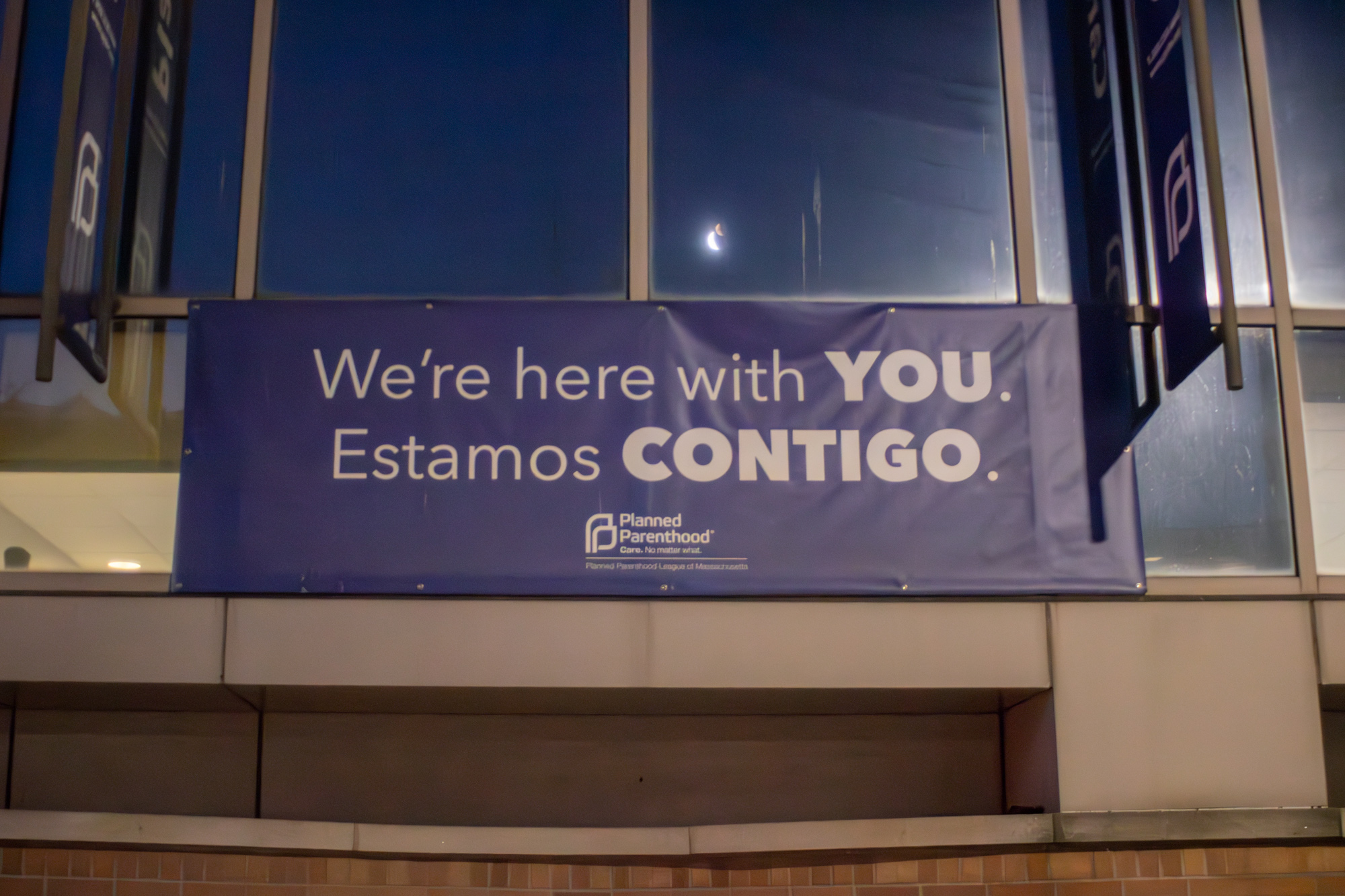Reproductive rights were a pivotal issue in Tuesday’s presidential election, with Boston voters either celebrating or grappling with former President Donald Trump’s victory over Vice President Kamala Harris.
Harris emphasized a commitment to signing federal law codifying abortion nationwide in her campaign. Meanwhile, Trump advocated for leaving abortion policy to individual states, though early statements hinted at possible support for a nationwide ban.
The majority Trump-appointed Supreme Court returned the right to determine the legality of abortion to the states in the 2022 Dobbs v. Jackson Women’s Health case, which overturned the nearly 50-year precedent set by the 1973 decision of Roe v. Wade.

Myrna Maloney Flynn, president and CEO of Massachusetts Citizens for Life, said MCFL was “thrilled” upon hearing the election results from an abortion standpoint.
“A Harris administration would have continued the extreme stance on abortion that the Biden administration had pursued,” Flynn said.
In the two and a half years since Roe was overturned, Massachusetts has continued to legally protect abortion rights.
John Cervantes, a third-year at Northeastern University and chair of NU’s chapter of Young Democratic Socialists of America, said abortion still remains a crucial issue for the historically blue state.
“Advocating for abortion is not just a Massachusetts thing,” Cervantes said. “It becomes a national question … because you know your rights don’t stop at a state’s border.”
A key issue
Trump’s win sparked strong emotions on both sides of the abortion debate, with reactions felt across Boston college campuses and beyond.
Boston University senior Shana Weitzen is the co-president of BU Students for Reproductive Freedom, a Planned Parenthood-affiliated “generation action” chapter.
SRF has been focusing on advocating to get mifepristone and misoprostol, medications used to terminate pregnancies, on BU’s campus through Student Health Services, Weitzen said. SHS currently offers pregnancy consultations to students, who can then be referred to outside clinics for additional care, such as contraception and abortion.
Weitzen said SHS should provide abortion medication directly to students to reduce “a lot of barriers.”
For Cervantes, the reproductive rights debate is indicative of a larger issue within the U.S.’s healthcare system, which he called a “sickness-care system” that “squeezes money out of people that are simply trying to live.”
YDSA advocates for better healthcare for women, as women’s rights are “fundamental” to the socialist movement, Cervantes said.
“There’s no worse commodification than simply using women for their reproductive abilities,” Cervantes said. “What so many of these reactionary forces want to do is to return women to a servile state.”
Cervantes said he hoped people would “choose the pro-freedom, pro-choice options” this election.
For pro-life organizations, the promises of Trump’s campaign provided hope for their causes. Flynn said MCFL trusts Trump to “keep his word” on his promise not to enact a national abortion ban.
Flynn said MCFL respects “the will of the people” of Massachusetts to continue codifying abortion as a “federalist society.”
“Would we love to see every life protected under law? Absolutely,” Flynn said. “Yet, we recognize that this now is a state’s rights issue, just as it should have been for the past five decades.”
Christian anti-abortion protesters
Opposition to abortion is prevalent throughout Greater Boston, evident in protests outside the Planned Parenthood on Boston University’s campus, where demonstrators have been urging passersby to consider alternatives to abortion.
Sat beside a poster of the Virgin Mary, with prayer beads around his neck and a statue of Jesus’s crucifixion in his hand, one protester, who asked to be referred to as “Saint Pat,” said religion motivates him to spread his message.
Pat said he “would like Jesus to change the hearts of people.”
“The Devil loves abortion,” Pat said. “He loves abortion, child sacrifices.”
Students on abortion access
Given the prevalence of anti-abortion rhetoric on campus, BU students expressed fears about the future of reproductive rights with Trump’s reelection.
“It’s terrifying to think that I have less rights than my mom did when she was my age,” said Freya Downey, a doctoral student at BU.
Downey said she fears further reproductive healthcare prosecution in her home state of Oklahoma and beyond.
“So much has already changed down there,” Downey said. “We have no idea what’s going to happen. That’s what’s so scary about it.”
Weitzen said Massachusetts has become a “safe haven” for abortion care, and students, especially from the Midwest or Southern states with more restrictions on reproductive care, were “very deliberate” in their college decisions.
“Talking with students, it’s something that has become more prevalent in where they choose to go to college,” she said.
Weitzen said bodily autonomy is important for students, because most would say they are “not in the position to care for a child right now.”
Looking forward
Dana Alas, executive director of the Mayor’s Office of Women’s Advancement, wrote in a statement that the City of Boston will “remain unwavering in its defense of reproductive freedoms,” despite the possibility that Trump’s win “could create a challenging landscape for reproductive rights nationally.”
“We anticipate potential federal restrictions and are prepared to advocate for local measures to counteract any threats, ensuring Boston remains a place where women’s health rights are protected and prioritized,” Alas wrote.
Flynn said educating Massachusetts citizens about MCFL’s cause will be central to its mission going forward. She said she fears misinformation will influence women’s decisions about whether to have an abortion.
Cervantes said granting women bodily autonomy is a “natural right” and, when granted, promotes equity in several facets of a society.
“Women make up half the labor force [and] half the population,” Cervantes said. “It only makes sense that they should have full access to their own body.”


















































































































